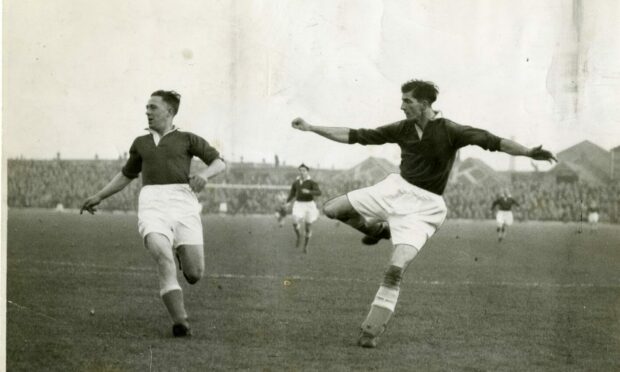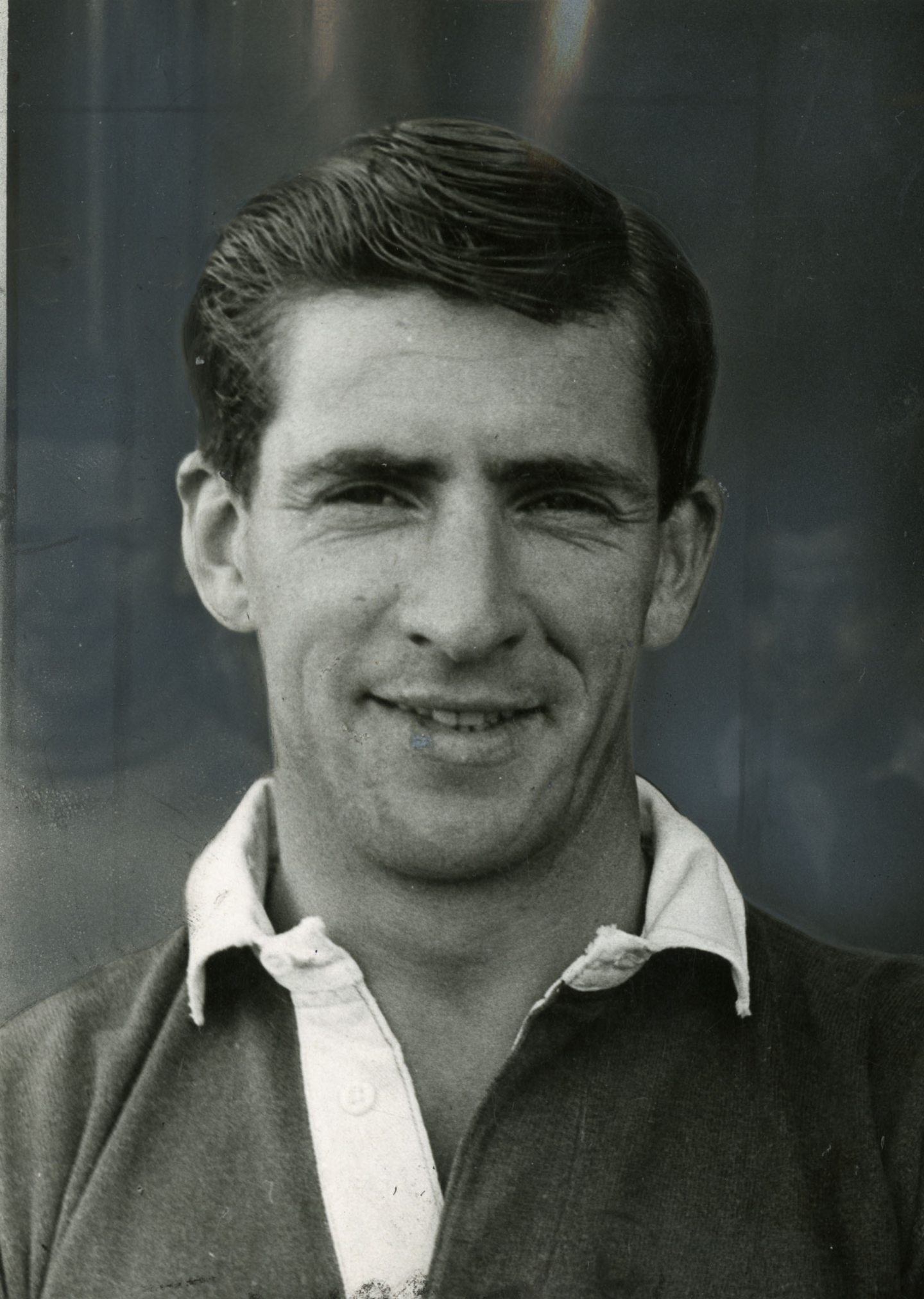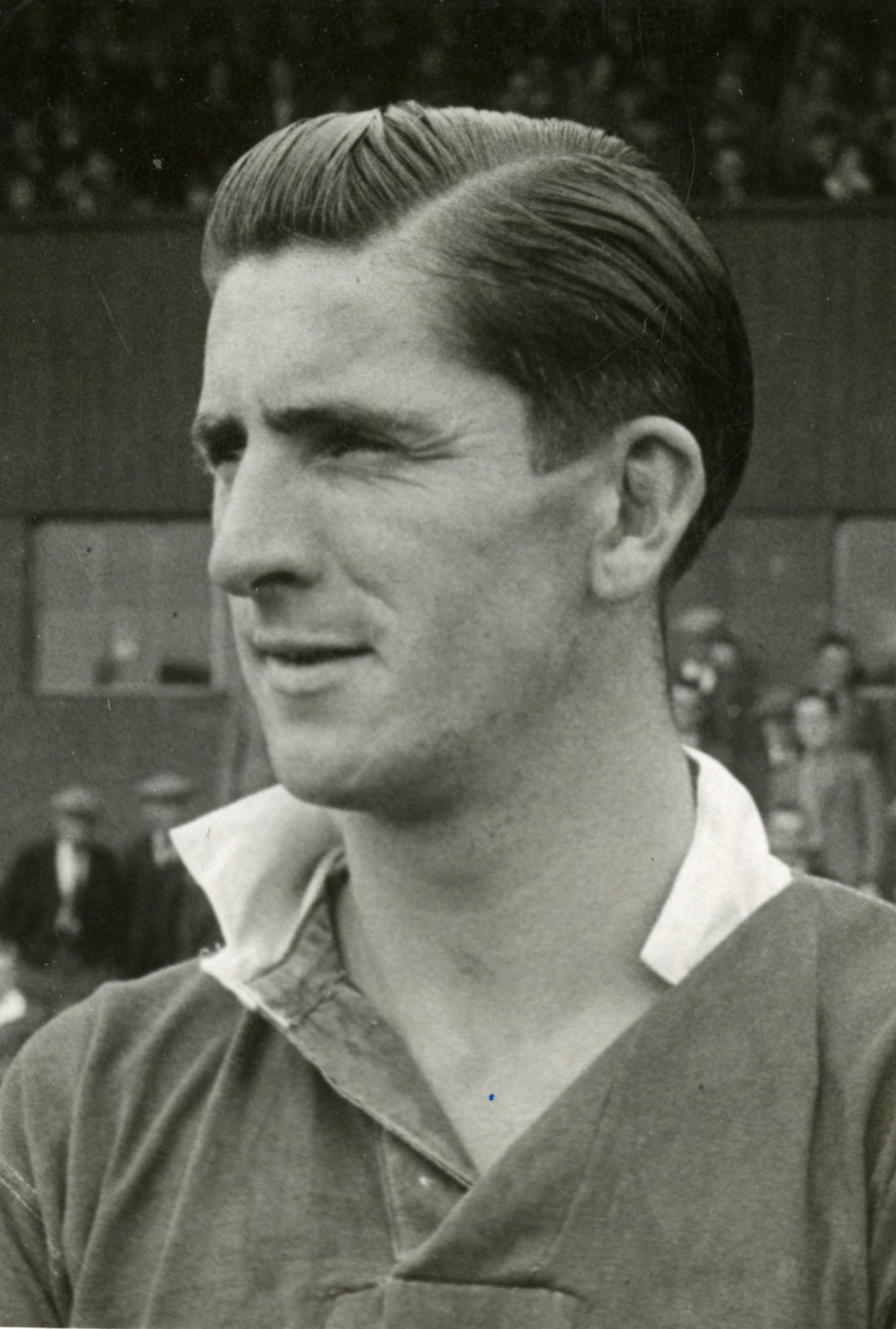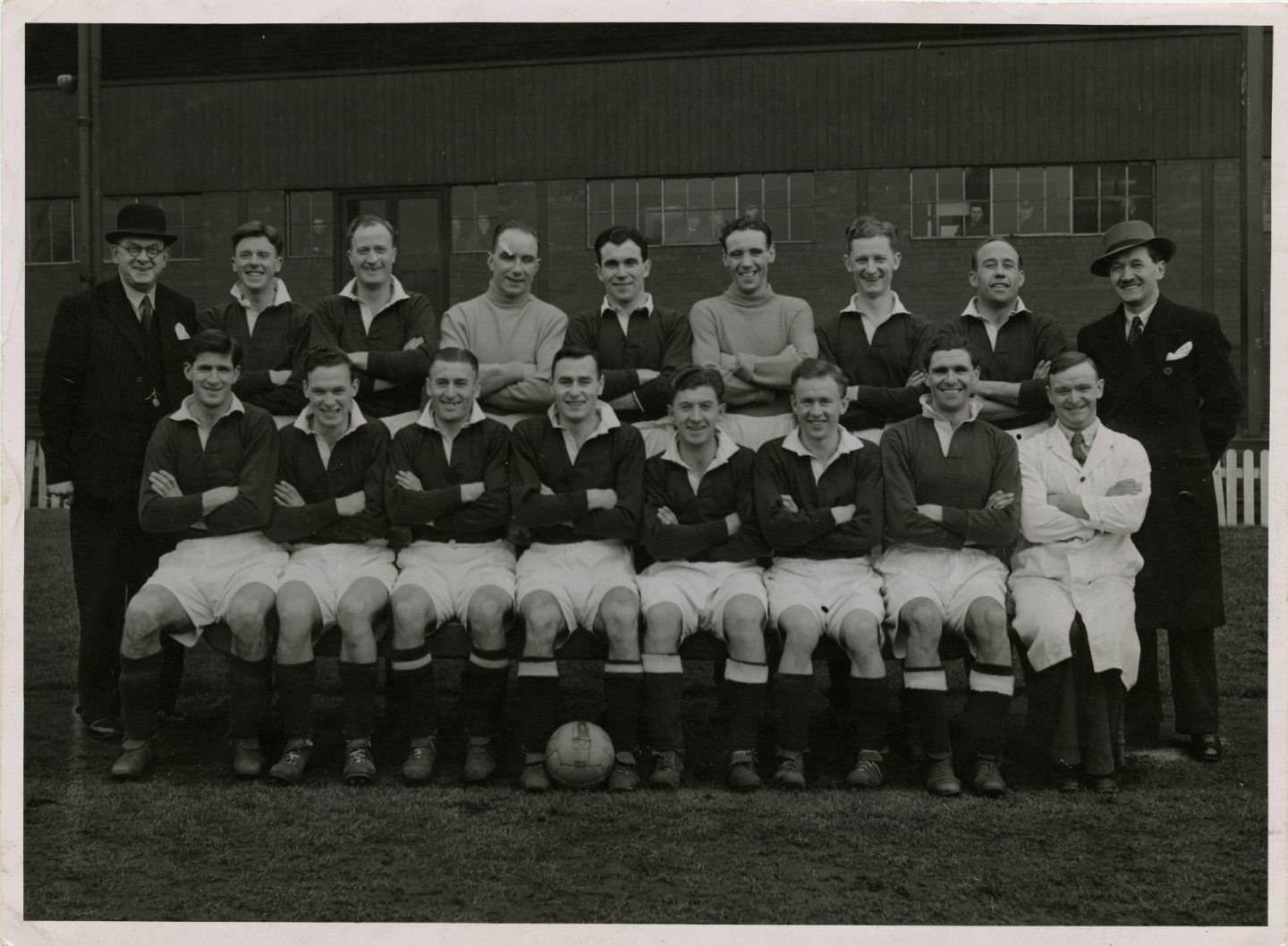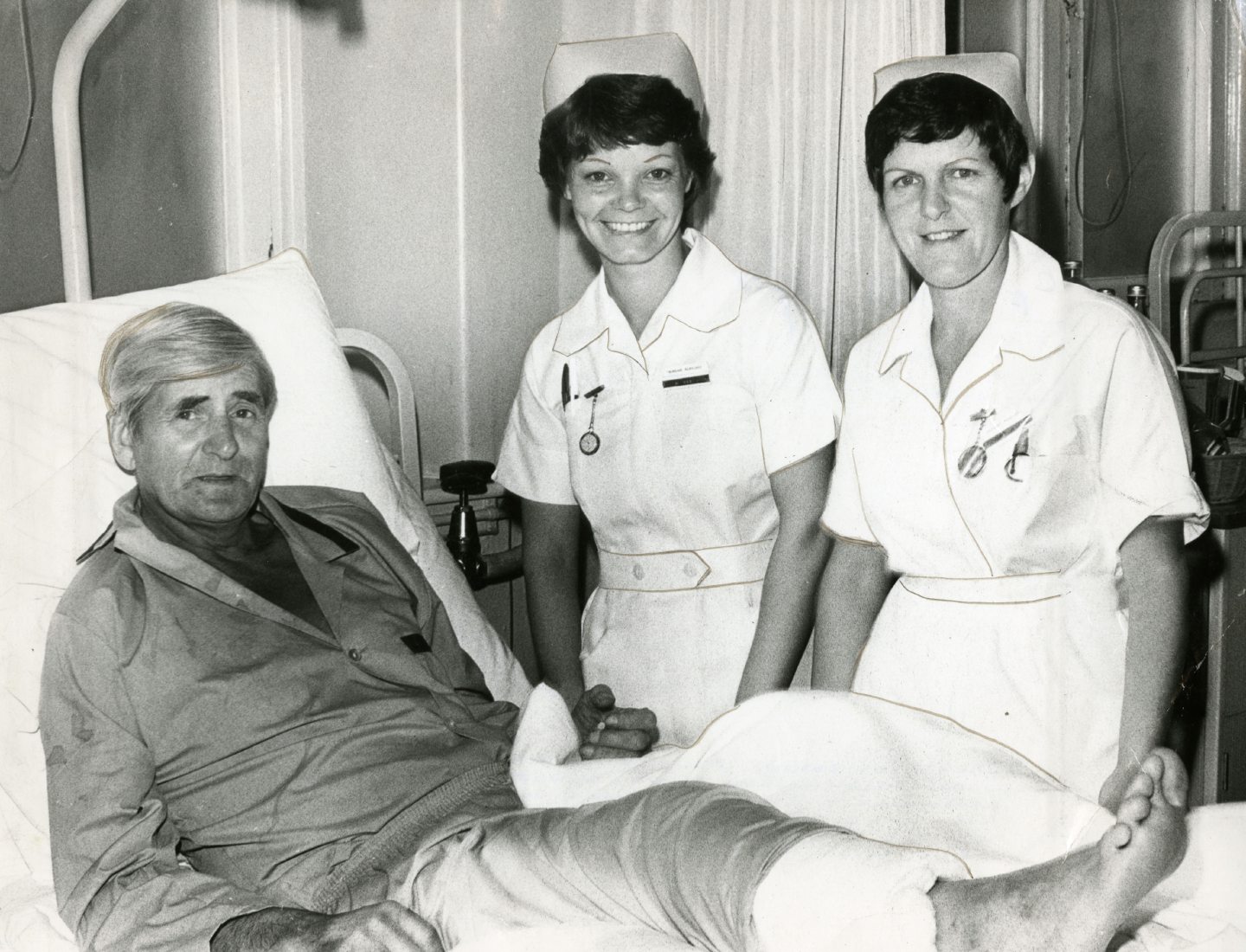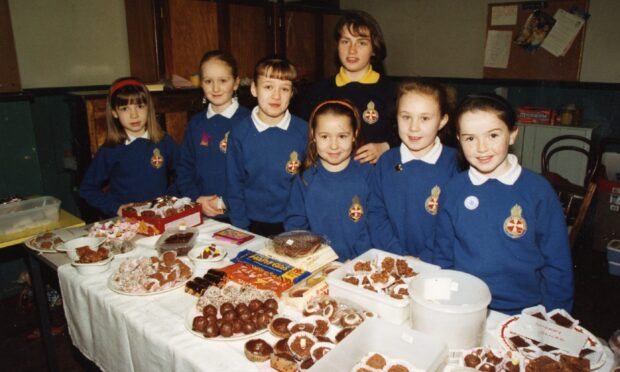There wasn’t much for Dundonians to cheer about in the drab, depressing days of rationing and post-war austerity in 1947.
The city would have to wait several years for the impact of the conflict to be redressed in a massive house-building programme and many families were still struggling to escape from the poverty in which they had grown up.
Yet, on the football field at least, one man sparked merry mayhem and became the darling of the crowds.
Folk flocked at Dens Park to witness the remarkable goal-scoring feats of centre forward Albert Juliussen, whose exploits were the stuff of dreams 75 years ago.
After all, how many players find the net 13 times in two consecutive matches? But that was what the Northumberland-born striker achieved in March 1947.
Pace, power and athleticism
There had already been signs during the hostilities that this mercurial figure possessed a Bunter-esque appetite for goals.
While based in Perth as an army instructor, the 21-year-old joined Dundee United, initially as a triallist, and soon became renowned for bewitching and bothering rival defenders and leaving them in his slip-steam.
In one match, against St Bernard’s, he set the record for a Dundee United player with six goals in a single game and was their leading scorer during the 1941-42 campaign.
And, by the time VE day was declared in Europe, Juliussen had notched up 87 goals in 73 wartime fixtures for the Tannadice club.
Impressive stuff in anybody’s language and he even found the net as a wartime guest in his sole appearance for Aberdeen in May 1945. But, as later events demonstrated, he was only warming up.
On the eve of the 1945-46 season, Juliussen, who was now hot property, signed for Dundee with a fee of £2,000 being paid to Huddersfield.

And his exploits have never been forgotten by Dens aficionados, as they proved when they inducted him into their Hall of Fame in 2019.
This very paper spoke of his ability to “ghost past opponents”, and he rattled up 95 goals in 73 outings across three seasons.
Yet nothing was more memorable than his astonishing displays in back-to-back 10-0 victories for Dundee: scores which the struggling Mark McGhee can only dream about.
Alloa were left chasing shadows
The first of these routs occurred against hapless Alloa Athletic at Recreation Park on March 8, where the hosts were served up a masterclass in the art of finishing by their rivals, with Juliussen at the helm.
Ally Gunn broke the deadlock after 13 minutes, but it was his colleague who did most of the shooting thereafter.
The first was a “dextrous effort”, according to the Sunday Post, whose correspondent seemed to sympathise with Alloa’s dramatic homage to the Fall of the House of Usher.
Not that the marauding Juliussen cared, as he added a brace in the 40th and 43rd minutes to seal his hat-trick, prior to repeating the dose in the second period, putting his side into double figures with his sixth of the afternoon.
The headlines the following morning were predictably packed with references to “Six of the Best”. They weren’t to know that, in Dundee’s next contest on March 22, they would be resorting to variations on seventh heaven.
You might imagine that sports journalists would be rhapsodising about any player managing to score seven times in the one game. It remains a club co-record, which Juliussen shares with Alan Gilzean.
But they must have been a hard bunch to please on Tayside in the 1940s. In fact, it’s almost as if a relative of Jim McLean was sitting in the press box while Dundee demolished Dunfermline 10-0 on that mad March Saturday.
The Post reported: “An ovation came at the end for the keeper who lost 10. There was also another for the centre-forward who put seven past him, incidentally giving him 13 bulls-eyes in his last two showings.
“The fans wanted Dundee to knock up their century of league goals, but these two fellows were responsible for their disappointment – Dunfermline goalie Newman, by his superb saving, and Juliussen by scoring only seven of the round dozen which he ought to have had.
“Still, even if he missed five pinches [sitters], Albert shot three wonder goals. The rest were gifted to him by the most co-operative team in Scotland today.”
It’s not quite damning with faint praise, but it’s pretty close. Thankfully, the supporters were quick to carry the conquering hero off the pitch at the end.
His star burned brightly for a spell
Sadly, for the Dens faithful, Juliussen was unable to add to his tally the following week when Dundee were involved in a Scottish Cup quarter-final clash with Aberdeen, which turned into a classic and required extra time.
As the Press & Journal reported: “Stan Williams was the man who made himself the toast of Aberdeen when he popped up with a winning goal in the third period of extra time [in the 129th minute!].
“With the Dundee defenders tiring, Williams had enough energy to run into the Dundee area and crash an unstoppable shot past Lynch as the large travelling support roared from the terraces and celebrated their 2-1 win.”
Still, if Juliussen was on the wrong end of that performance, there was a love match to lift his spirits and he finished in Aberdeen just a few months later.
The Evening Telegraph of September 15 carried the happy news of the marriage between Juliussen and his bride, Wilma Lee, who travelled to the reception in the Royal British Hotel in a Rolls-Royce.
The paper added: “Julie [Juliussen], with a large wooden horse-shoe round his neck, was borne rather less comfortably across High Street on the shoulders of his colleagues, including Dundee skipper, Reggie Smith, and players, Johnny Lynch, Reuben Bennett, Douglas Cowie, Alf Boyd, Johnny Pattillo, Ernie Ewen and Alex Stott.
“The players joined the bride and groom at the hotel for the cutting of the cake and, led by Reggie Smith, congratulated the couple.
“After a small luncheon party, ‘Julie’ and his bride left for their honeymoon by car to Aberdeen.”
Juliussen’s career never hit the same heights again, though he couldn’t be accused of not trying his best to find new challenges at other clubs.
In the next five years, he turned out for Portsmouth, Everton, Consett [in Durham], Berwick Rangers, Dundee United [very briefly] and Brechin City, where his goal against Celtic A, in front of a crowd of 11,000 people, secured them the title and ‘Division B’ status in 1954.
He left the game thereafter and died, aged 61, in 1982, yet his Roy of the Rovers-style heroics have earned him cult status at Dens Park forever.
As the club said in 2019: “He brought hope and joy to a war-weary Dundee footballing public, who were grateful for the goals that fired Dundee back into the big time and the club were honoured to have his son Laurence in attendance to accept his Heritage Award on his behalf.”
More like this:
Bobby Seith: Burnley and Dundee FC legend’s footballing life in pictures
Cobbled streets a riot of colour as Dundee hosted Scotland match in 1896
